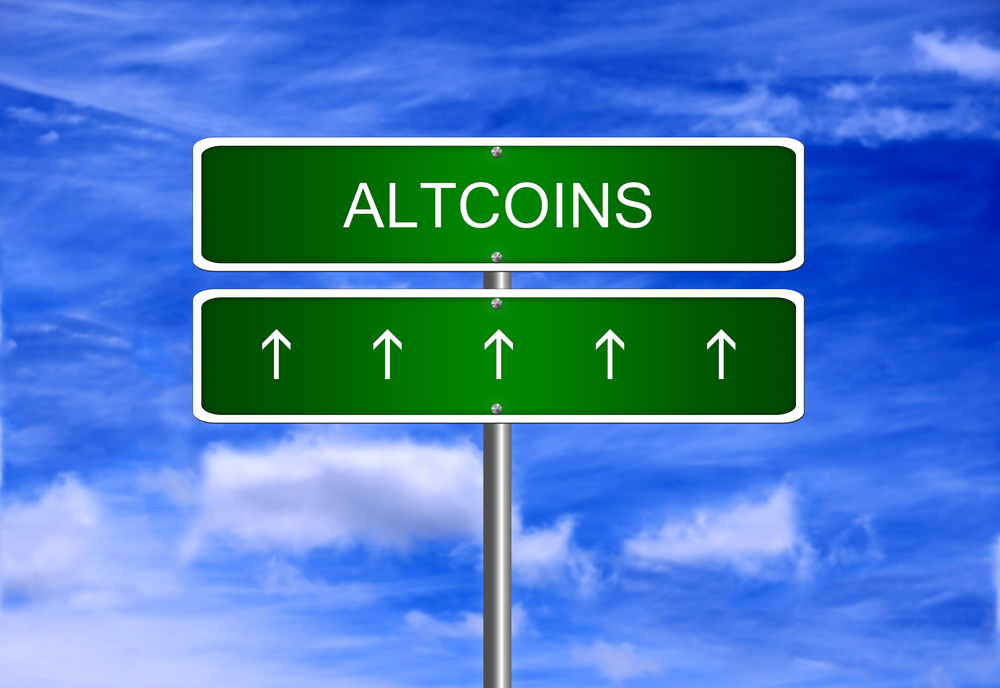Altcoins, or “alternative coins,” are any cryptocurrencies other than Bitcoin. Bitcoin, as the first and most widely recognized cryptocurrency, set the stage for a new type of digital financial system. But as the potential of blockchain technology grew, new projects and currencies emerged with unique features and specific goals, thus giving birth to the term “altcoin.”
Altcoins range widely in purpose, design, and underlying technology, and while Bitcoin remains the most popular cryptocurrency, altcoins represent an important part of the broader digital asset ecosystem. They offer a variety of unique functionalities and use cases, often attempting to address the limitations of Bitcoin or targeting specific niches within the financial, entertainment, or tech sectors.
What are the types of Altcoins?
- Stablecoins Stablecoins are cryptocurrencies pegged to stable assets like the U.S. dollar or gold. They aim to reduce the volatility common in other cryptocurrencies, making them more practical for day-to-day transactions. Popular examples include Tether (USDT), USD Coin (USDC), and Binance USD (BUSD).
- Utility Tokens These tokens are designed to provide access to a product or service within a specific blockchain platform. For instance, Ether (ETH), the cryptocurrency for the Ethereum network, is used to pay for transaction fees and services within the network.
- Governance Tokens Governance tokens grant holders voting rights on certain decisions within a blockchain project. These tokens empower users to influence the future development of a cryptocurrency or decentralized platform. Examples include Maker (MKR) and Uniswap (UNI).
- Meme Coins These are cryptocurrencies often launched as a joke or based on internet memes but have garnered popularity and significant investments. Dogecoin (DOGE) and Shiba Inu (SHIB) are popular examples, driven largely by community engagement and social media hype.
- Privacy Coins Privacy coins prioritize the anonymity and privacy of transactions. They use special technologies to obscure the origin, destination, and amount of transactions. Monero (XMR) and Zcash (ZEC) are among the most well-known privacy coins.
- Platform Tokens Some altcoins serve as the native currency for blockchain platforms that support decentralized applications (dApps) and smart contracts. Examples include Ethereum (ETH) and Cardano (ADA), which allow developers to build various applications on their respective platforms.
- Forks of Bitcoin Some altcoins are “forks” of Bitcoin, meaning they are derived from Bitcoin’s original code but altered to create new versions with different features. Bitcoin Cash (BCH) and Bitcoin SV (BSV) are notable examples.
What makes Altcoin special?
Altcoins play a crucial role in expanding the use cases and applications of blockchain technology. While Bitcoin is often viewed as “digital gold” or a store of value, altcoins address specific needs such as:
- Enhanced Transaction Speed: Some altcoins process transactions faster and more efficiently than Bitcoin, making them suitable for day-to-day payments. Litecoin, for example, is designed to process transactions quicker than Bitcoin.
- Improved Scalability: Several altcoins aim to solve scalability issues, which is essential for mass adoption. Ethereum 2.0, for instance, is an upgrade aimed at improving scalability for the Ethereum network.
- DeFi (Decentralized Finance) and dApps: Ethereum and other smart contract platforms enable decentralized finance applications, eliminating the need for traditional financial intermediaries. Other altcoins, like Solana (SOL) and Polkadot (DOT), further support a vast ecosystem of DeFi products and dApps.
- Increased Privacy: Privacy coins like Monero and Zcash were created to ensure user anonymity, which is challenging with Bitcoin’s transparent blockchain.
What to consider when investing in Altcoins?
Altcoins have become popular among investors who want to diversify their crypto portfolios beyond Bitcoin. Many altcoins, especially those linked to innovative projects, can offer high growth potential but also come with significant risk. Key points to consider when investing in altcoins include:
- Volatility: Altcoins are often more volatile than Bitcoin, which can lead to higher risk but also higher potential rewards.
- Use Case and Technology: Evaluate the unique use case and technology behind an altcoin. Does it address a specific need? Is there demand for its service or product?
- Community and Development Team: A strong community and a competent development team can be positive indicators of an altcoin’s potential longevity and growth.
- Market Trends: Cryptocurrency markets can be highly influenced by trends and external factors. Pay attention to regulations, technological advancements, and overall market sentiment.
- Security: Always use reputable platforms and wallets to store altcoins, as the altcoin space is vulnerable to scams and hacks.
Conclusion
Altcoins represent the innovation and diversity within the cryptocurrency market. From stablecoins to privacy-focused coins and utility tokens, altcoins provide solutions to specific needs and broaden the applications of blockchain technology. Although altcoins offer exciting opportunities, they also carry risks due to their volatility and, in some cases, limited track record. Whether you’re interested in the functionality of stablecoins, the security of privacy coins, or the potential of smart contract platforms, altcoins provide a way to explore the diverse landscape of digital assets.

A.k.a – alpha girl. Vinita is the founder of Alphachaincrypto. An English Lit Majors, Vinita bumped into Web3 in 2020 only to realise that tech was her calling. Later, Mathreja worked for some notable brands like Near Education, Biconomy, CoinDCX and top of the line crypto start ups.




